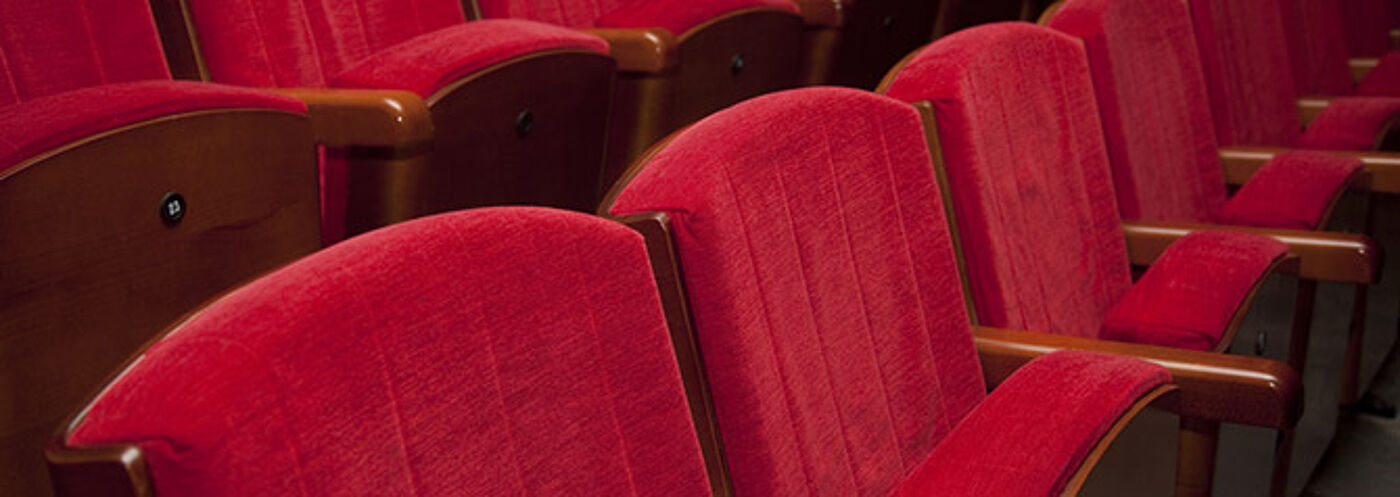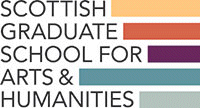Film & TV Studies PhD/MLitt (Research)/MPhil (Research)/MRes

Our outward-looking, multi-disciplinary research activities are based on high-quality, challenging and flexible graduate programmes.
- PhD: 3 years full-time; 5 years part-time; Thesis of 70,000-100,000 [around 30,000 if practice based] words
- MLitt (Research): 2 years full-time; 3 years part-time; Thesis of 40,000-70,000 words
- MPhil (Research): 1 year full-time; 2 years part-time; Thesis of 30,000-40,000 words
- MRes: 1 year full-time; 2 years part-time; Thesis of 20,000-30,000 words
Overview
We offer postgraduate research students a wide range of options for independent study, from one-year taught degrees to three-year doctoral programmes. In undertaking such a programme, you will be joining a thriving and vibrant postgraduate community.
We welcome students from a variety of backgrounds, working on areas of specialist interest using methods from the arts, humanities and social sciences, including, where appropriate, research through practice.
Topics in which we would welcome postgraduate research include:
- Television and Film Theories
- Screen Histories, Aesthetics and Practices
- The National, Transnational and World Cinemas
- Film Festivals and Curation
- Media Technologies
- Gender, Race, Age, Disability and Class
Theatre, Film and Television Studies and the Centre for Cultural Policy Research was awarded a score of 80% at 4*/3* (4* being the highest possible score) across all its research practice (Outputs, Impact, Environment), in the latest nationwide Research Excellence Framework (REF2014). The Research Environment in particular was awarded a score of 100% at 4*.
Contact us
- Convenor of Research Degrees: David.Archibald@glasgow.ac.uk
Study options
PhD
- Duration: 3 years full-time; 5 years part-time
- Thesis length: 70,000-100,000 words, including references, bibliography and appendices (other than documentary appendices).
A Doctor of Philosophy may be awarded to a student whose thesis is an original work making a significant contribution to knowledge in, or understanding of, a field of study and normally containing material worthy of publication.
We also welcome practice-based PhDs where the written part of thesis will be of a shorter word length, but include a substantive piece(s) of practice. The written component of the thesis will be negotiated with your supervisor, but will not normally be under 30,000 words.
MLitt (Research)
- Duration: 2 years full-time; 3 years part-time
- Thesis length: 40,000-70,000 words (including references, bibliography and appendices).
Our Degree of Master of Letters (Research) requires you to undertake a postgraduate course of special study and research that represents a distinct contribution to knowledge.
MPhil (Research)
- Duration: 1 year full-time; 2 years part-time
- Thesis length: 30,000-40,000 words (including references and bibliography).
A Master of Philosophy (Research) requires you to undertake a postgraduate course of special study and research that represents a distinct contribution to knowledge.
MRes
- Duration: 1 year full-time; 2 years part-time
- Thesis length: 20,000-30,000 words (including references, bibliography and appendices).
Our Master of Research includes both taught and research elements. You will be required to undertake 60 to 80 credits worth of taught courses as well as independent study which represents some contribution to knowledge.
Distance Learning
It may be possible to undertake a postgraduate research degree (with the exception of MRes) in the College of Arts and Humanities by distance learning. If you wish to explore this option, you should discuss it initially with your proposed supervisor.
Entry requirements
Our regular standard of admission is at least an Upper Second Class Honours degree (2:1), although candidates will usually also have completed or be undertaking a Masters qualification.
Research outline
Candidates are required to provide an outline of the proposed research subject in about 1000 words. This need not be your final thesis proposal but should include:
- a straightforward, descriptive, and informative title
- the question that your research will address
- an account of why this question is important and worth investigating
- an assessment of how your own research will engage with recent study in the subject
- a brief account of the methodology and approach you will take
- a discussion of the primary sources that your research will draw upon, including printed books, manuscripts, archives, libraries, or museums
- an indicative bibliography of secondary sources that you have already consulted and/or are planning to consult
Your application, including your references and research proposal, will be passed to members of staff whose expertise and research interests most closely match the area of your proposed study.
English language requirements
Fees and funding
Fees
2025/26
- UK: £5,005
- International & EU: £26,580
Prices are based on the annual fee for full-time study. Fees for part-time study are half the full-time fee.
Irish nationals who are living in the Common Travel Area of the UK, EU nationals with settled or pre-settled status, and Internationals with Indefinite Leave to remain status can also qualify for home fee status.
Alumni discount
We offer a 20% discount to our alumni on all Postgraduate Research and full Postgraduate Taught Masters programmes. This includes University of Glasgow graduates and those who have completed Junior Year Abroad, Exchange programme or International Summer School with us. The discount is applied at registration for students who are not in receipt of another discount or scholarship funded by the University. No additional application is required.
Possible additional fees
- Re-submission by a research student £540
- Submission for a higher degree by published work £1,355
- Submission of thesis after deadline lapsed £350
- Submission by staff in receipt of staff scholarship £790
Depending on the nature of the research project, some students will be expected to pay a bench fee (also known as research support costs) to cover additional costs. The exact amount will be provided in the offer letter.
- College of Arts & Humanities Graduate School funding opportunities
- MRes Scholarship: Creativity, Inclusion and the Virtual
Support
Teaching and research in the Arts and Humanities is supported by the outstanding resources of our University Library with its special collections and our on-campus Hunterian Museum and Art Gallery.
Our close links and partnerships with Glasgow Life, and the city’s many museums, art galleries, performing arts and music venues, international festivals and creative industry organisations make the University of Glasgow the ideal place for postgraduate study of the arts.
Graduate School
Our Graduate School creates a productive and interdisciplinary collegiate environment for all of our research students. We offer a range of services, courses and skills development opportunities for research students.
The College of Arts & Humanities is home to a vibrant and diverse community of students enrolled on taught masters and research programmes within a stimulating intellectual and cultural environment. Across every school and subject area the college is home to world-leading and agenda-setting research.
Find out more about what is happening in the community by following us on social media.
You will also be part of the wider Scottish Graduate School for Arts and Humanities, the world's first national graduate school in the Arts & Humanities. Membership includes 16 Scottish universities, four art schools & the national conservatoire, with support from the arts, culture, creative & heritage sectors.
The Gilmorehill Centre
A specially converted building with a cinema, theatre and performance studio, provides an ideal venue for research dissemination, hosting a series of conferences, seminars and workshops, and offers excellent opportunities for public engagement, through film seasons, mini-festivals, performances, public talks and lectures. A collection of over 10,000 DVDs and videos of films, television programmes and theatre performances, is housed in our Resource Centre which is equipped with viewing and IT facilities. We are supported by two dedicated technicians, one specialising in AV/IT and one in theatre and performance. Find out more about our Theatre, Film and TV facilities.


